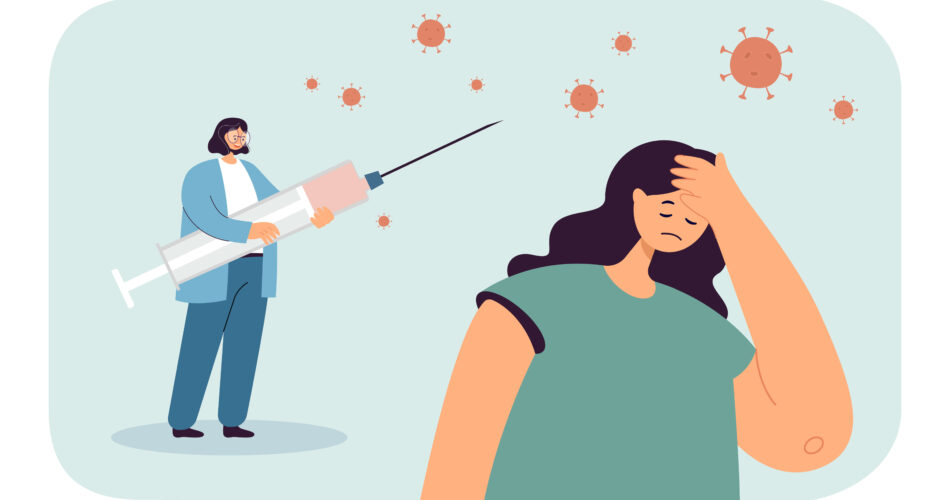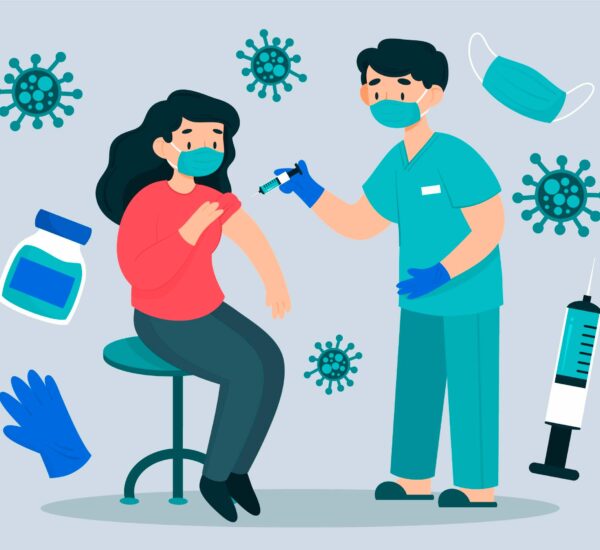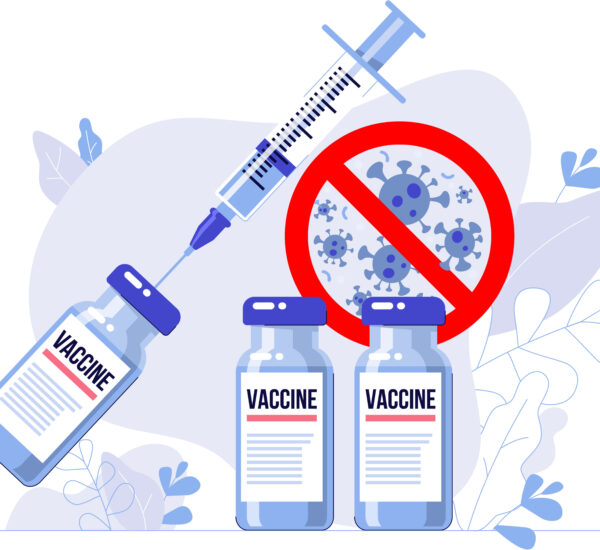The human papillomavirus vaccine has proven effective in preventing certain cancers and genital warts. However, as with any medical intervention, there are cases when vaccination might not be suitable. Understanding HPV vaccination contraindications — knowing when it’s best to delay or avoid the vaccine — ensures that individuals make the safest choice based on their health conditions.
This article will explore the circumstances in which the HPV vaccine may not be appropriate, including specific health conditions and situations like pregnancy. We’ll delve into the reasoning behind these contraindications, helping readers make informed decisions about vaccination timing and risks.
How Does HPV Vaccine Work
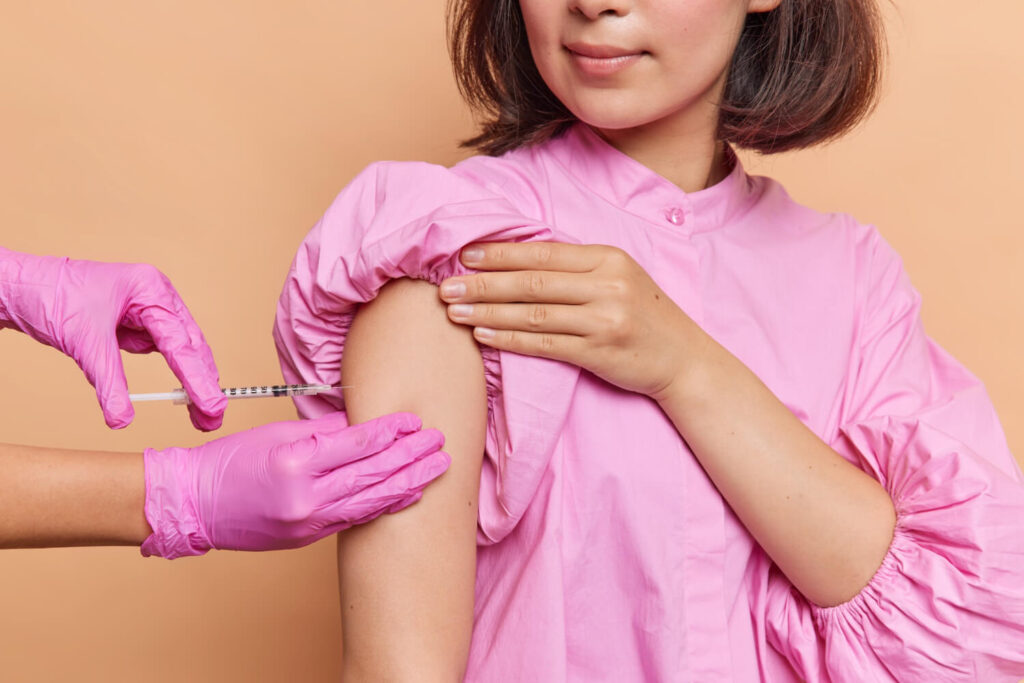
Understanding the nuances of HPV vaccination contraindications is crucial for making informed decisions about healthcare. The human papillomavirus vaccine is a vital tool for controlling and preventing HIV infection from spreading. If people in the community have received the vaccine at the recommended age, transmission of the virus can be prevented, making it a crucial tool for protection and ensuring better health for everyone.
Here’s how this HPV vaccine can do that:
Doses of HPV Vaccine
The HPV vaccine typically requires two doses, while others might receive three doses. Completing the recommended doses is crucial in obtaining maximum protection against human papillomavirus infections, which can significantly reduce the risk of related cancers and genital warts.
Dosage Recommendations:
Ages 9 – 14: 2 doses of HPV vaccine are required
Ages 15 – 45: 3 doses of HPV vaccine are required
By understanding the dosing schedule and adhering to it diligently, individuals can ensure they are effectively safeguarding themselves against HPV-related health complications. Consultation with healthcare providers can provide personalized guidance on the appropriate dosing regimen based on individual circumstances and health status.
Frequency in Vaccine
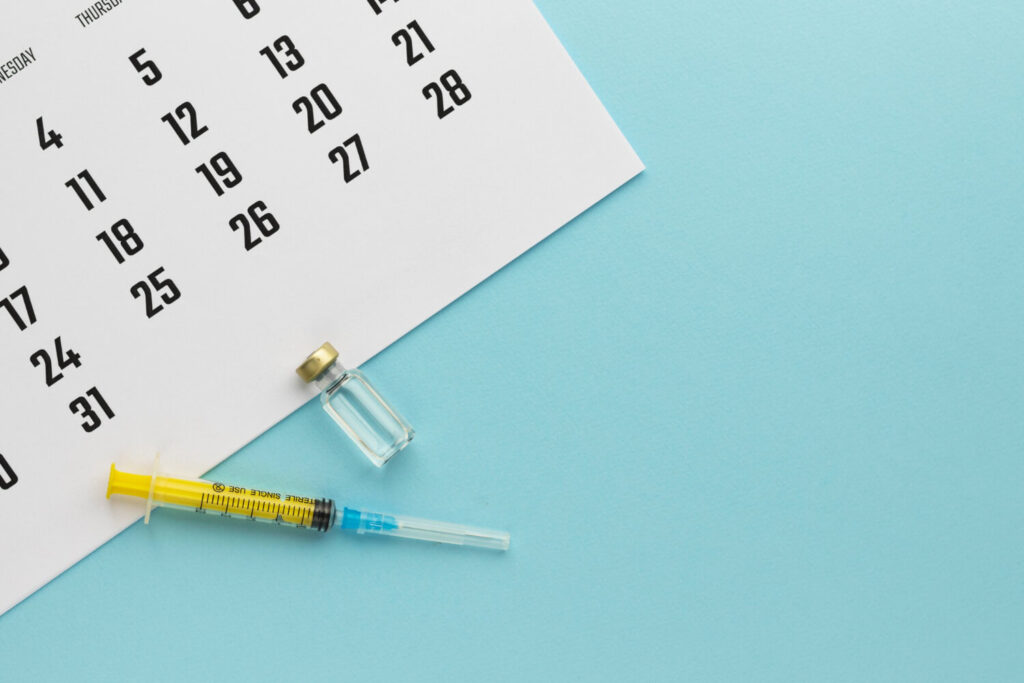
The frequency of the HPV vaccine administration is an essential consideration for ensuring optimal protection against human papillomavirus infections. Adhering to appropriate dosing intervals is critical in achieving maximum effectiveness and reducing the risk of HPV-related health issues.
Young and Adult Immunization Schedule:
Ages 9 – 14: The second dose of HPV vaccine occurs 6 months after the first vaccine
Ages 15 – 45: The second dose occurs 1-2 months after the first vaccine, while the third dose resumes 6 months after.
Consulting with healthcare providers can offer personalized guidance on the appropriate vaccine frequency based on individual needs and health status. This proactive approach can help individuals make informed decisions about their healthcare.
For more information on the benefits and safety of HPV vaccination, explore our comprehensive guide on HPV Vaccination Benefits.
When to Delay or Avoid Vaccine: Common HPV Vaccination Contraindications
Before proceeding with the HPV vaccination, it is essential to be aware of certain contraindications. Understanding these contraindications is crucial in ensuring the safety and efficacy of the HPV vaccine. Let’s uncover them below and learn about HPV vaccine safety!
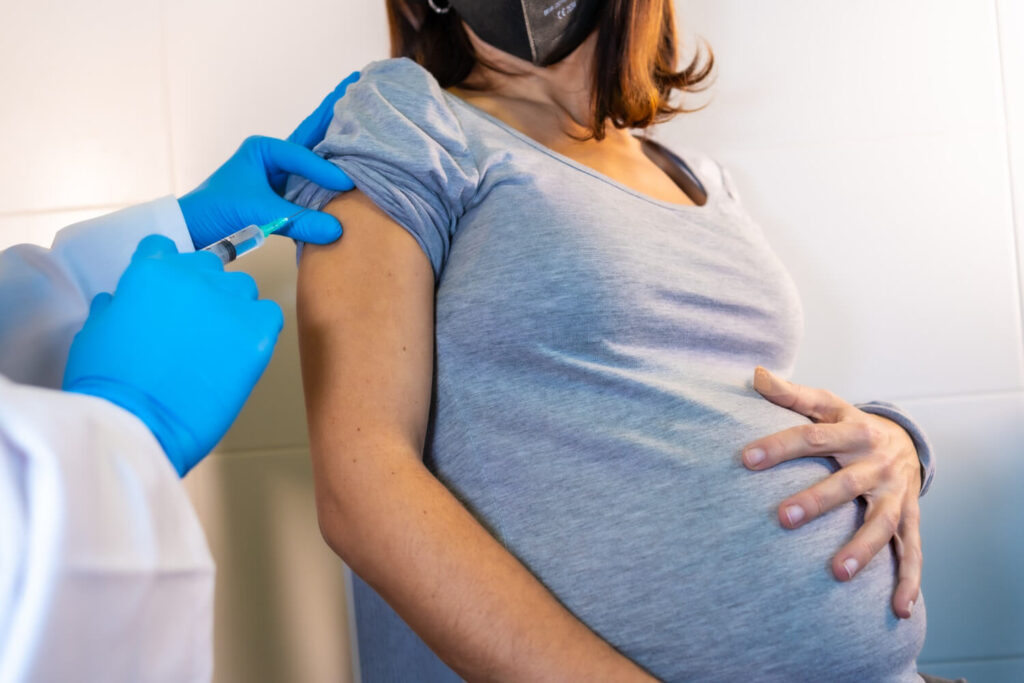
Pregnancy and Vaccines for HPV
Pregnancy is one of the primary situations in which HPV vaccination is not recommended. Studies have not shown that drug administration has adverse effects on pregnant women; however, there is a lack of comprehensive data on its safety for fetal health. As a precaution, advisory committees such as the Department of Health, World Health Organization, etc. recommend that avoiding the HPV vaccine until after delivery is the best option for pregnant individuals.
However, if a case occurs such as someone who begins an HPV vaccination series and discovers they are pregnant should postpone the remaining doses until postpartum. If a pregnant woman inadvertently receives the HPV vaccine, it is advised to consult a healthcare provider and follow their HPV pregnancy guidelines.
Severe Allergies to Vaccine Ingredients
Some young adults and adult patients may experience an adverse event like severe allergic reactions (anaphylaxis) to certain ingredients in the HPV vaccine. The vaccine contains proteins from the HPV virus along with stabilizers and preservatives. Those with a known allergy to any component of the vaccine should avoid vaccination.
Common ingredients in the HPV vaccine: These may include aluminum-containing compounds, yeast, and polysorbate 80. For instance, the Gardasil 9 vaccine includes all of these components.
What to do if you have allergies: Individuals allergic to yeast or any other HPV vaccine ingredient should discuss alternatives with their healthcare provider. In rare cases, individuals may undergo allergy testing or different assessments to determine if vaccination is safe.
Immunocompromised and HPV Vaccine
The HPV vaccine is typically safe for people with weakened immune systems, but caution is advised for those with severe immunodeficiency. People undergoing chemotherapy, taking immunosuppressive drugs, or dealing with advanced sexually transmitted infections like HIV infection or AIDS should consult a doctor before getting the vaccine.
- Immunocompromised status and vaccine efficacy: An immune-compromised person may not respond as robustly to the vaccine, potentially reducing its effectiveness. However, the vaccine is not a live-virus vaccine, so it is not expected to cause illness.
- Doctor consultation is key: It is recommended that immunocompromised individuals discuss vaccination options with their healthcare providers to ensure the safest approach. Doctors may also advise scheduling the vaccine when the immune system is stronger.
Age Considerations: Approved Age Groups and Special Cases
When it comes to receiving the HPV vaccine, there’s an age group typically recommended for 9 years of age, but it is approved up to the age range of 45. However, individuals above this age group or younger than 9 are generally advised to avoid vaccination due to limited research on safety and effectiveness.
- Age 45+ contraindication: After age 45, the vaccine is not recommended since its efficacy diminishes in older age groups who may have already been exposed to HPV strains that can lead to cervical cancer, genital warts, etc.
- Cases for younger children: The vaccine is generally not administered to people younger than 9, as this age group has limited exposure risk and insufficient safety data for the vaccine’s effects.
People with Moderate to Severe Illnesses
Other HPV vaccination contraindications involve individuals with moderate or severe illness. Vaccination during illness can place additional stress on the body and might result in exaggerated side effects. In that case, they are advised to delay HPV vaccination until they have recovered.
- What counts as a moderate to severe illness: Conditions like high fever, significant infections, and severe respiratory issues are generally considered severe enough to postpone vaccination. Minor illnesses like mild colds and low-grade fever do not typically require a delay.
- Vaccination post-recovery: It is usually safe to proceed with the HPV vaccine after full recovery, but a healthcare provider’s guidance is recommended.
Frequently Asked Questions (FAQs)
What should I do if I receive the human papillomavirus vaccination while pregnant?
If you received the HPV vaccine before knowing you were pregnant, there’s no need for concern. Extensive monitoring and studies have shown no harmful effects from unintentional vaccination during pregnancy. Consult your healthcare provider, but no special treatment is typically required.
Is it safe for individuals with HIV to receive the HPV vaccine?
Yes, individuals with HIV can receive the HPV vaccine, but those with severe immunocompromise should consult a healthcare provider first. Routine HPV vaccination is safe and can help prevent HPV-related cancers in immunocompromised individuals.
Are there different HPV vaccine options for people with allergies?
Currently, there is one primary HPV vaccine, Gardasil 9, which contains the broadest protection against HPV strains. Those with severe allergies to any component in the vaccine should consult with a healthcare provider to discuss possible alternatives or treatments.
Should I get another vaccine if a new HPV infection is detected?
Patients commonly contract the virus due to unprotected sexual activity, multiple sexual partners, etc. If you tested positive despite receiving the vaccine before, one way to address them is through a consultation. Experts in the field can first assess your condition and recommend the best next step for you. So, it’s best to book a consultation immediately.
How to get the HPV vaccine Philippines?
To get the HPV vaccine in the Philippines, you can visit government health centers, private clinics, or hospitals that offer vaccination services. However, here at the NowServing app, you can meet with the experts who can guide you throughout the process. Consult with a healthcare provider to determine the most suitable vaccination schedule and to address any specific concerns you may have regarding the HPV vaccine.
Final Takeaway
Knowing the HPV vaccination contraindications helps individuals make informed, safe decisions. By following these guidelines, Filipinos can ensure they are protecting their health while reducing unnecessary risks.
If you’re uncertain about receiving the HPV vaccine due to any of these contraindications, consult a healthcare provider to determine the best timing and approach.
HPV Vaccination Quiz
Test your knowledge about HPV vaccine contraindications
